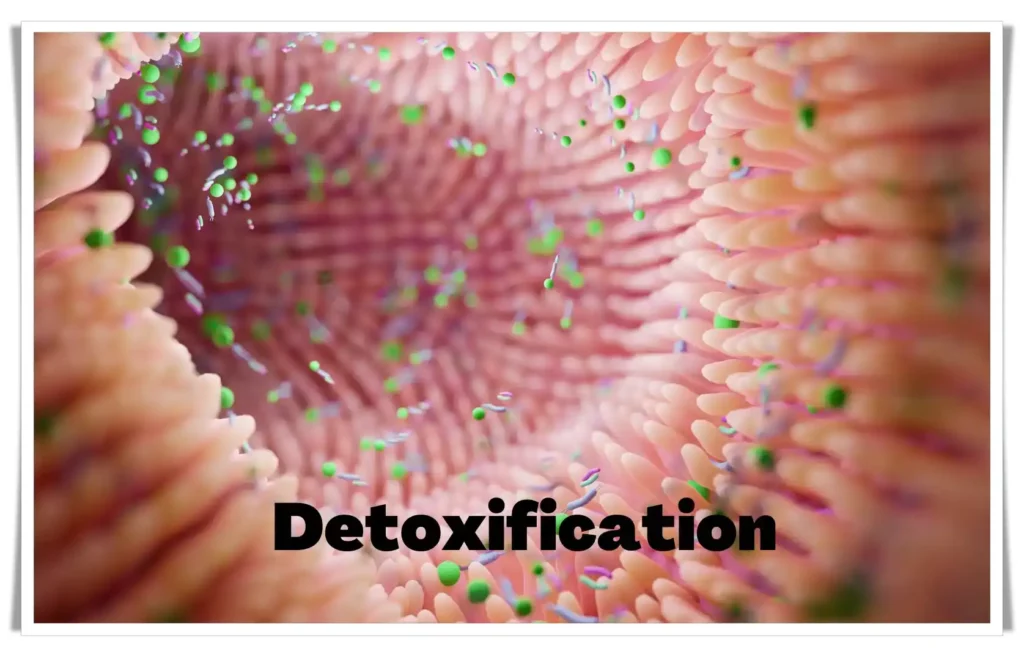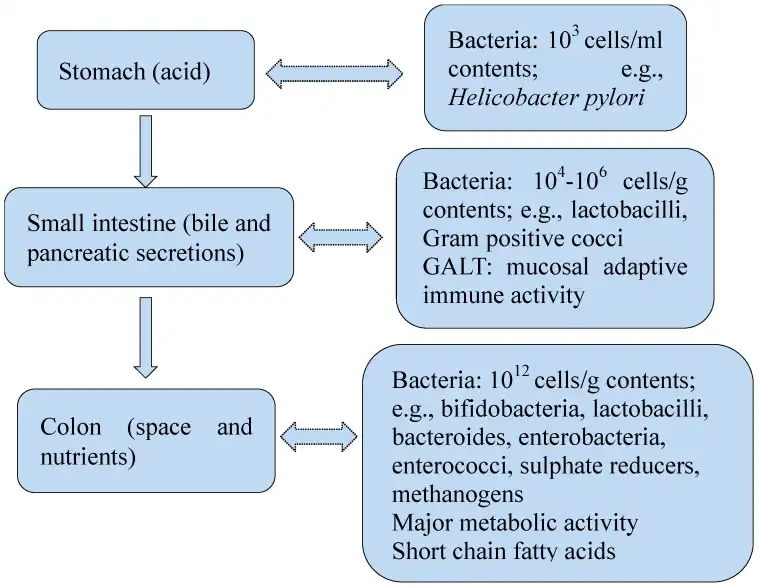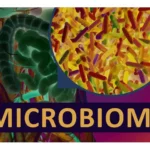The human body is a marvel of biology, a complex system that functions with a precision that has been honed over millions of years of evolution. But have you ever stopped to consider that you're not just a single entity, but a thriving ecosystem of trillions of microorganisms? Yes, that's right! The microbiome, especially gut bacteria, plays a pivotal role in shaping our silhouette and overall health. Today, we delve deep into this fascinating topic, unearthing the secrets of microbiome mastery and its impacts on our life.
Empower Your Health Journey – Explore My Free Apps for a Vibrant, Healthier Lifestyle Today!
The Magic of Microbiome
Our bodies host a vast network of bacteria, each of us a unique tapestry of microbiota. These bacterial populations have a profound influence on our health, appearance, and even our moods. In essence, our gut bacteria have a whopping 150 times more genes than we do, with this vast genetic footprint referred to as the microbiome.
The microbiome is not static; rather, it evolves continuously, influenced by our lifestyle choices. It has been observed that the guts of overweight individuals are home to more bacteria specialized in metabolizing glucose, making them prone to gaining weight. Moreover, gut bacteria also regulate our moods, with fewer bacteria with anti-stress action in the elderly, making them more susceptible to depression and anxiety.
Microbiome and Nutritional Impact
Interestingly, our diet can have a significant impact on the composition of our microbiome. Some food items are beneficial for some and not for others, based on the unique composition of their microbiomes. For instance, soy is known to have a protective effect against cancer and cardiovascular diseases in over 50% of Asians, but this effect reduces to 25-30% in Europeans. The reason is that the intestines of Westerners lack bacterial genes that fully metabolize soy. Hence, food traditions, which have shaped our genetic, enzymatic, and bacterial makeup, are crucial to consider.
Microbiome and Detoxification
The liver is our body's primary detoxification organ. It's like a chemical processing plant that converts toxins and waste products into substances that can be safely excreted from the body. But did you know that our gut bacteria play a crucial role in this process too? Yes, that's right. Some types of bacteria residing in our gut are known to enhance the liver's detoxification capacity, thereby directly contributing to our health and well-being.
For instance, gut bacteria play a role in the metabolism of various drugs, including common over-the-counter medications like Paracetamol. They can influence how quickly and effectively the liver can eliminate the drug's active substances from our bodies. Thus, a healthy and diverse microbiome can assist in drug metabolism and prevent toxic build-up, which can otherwise lead to drug-induced liver injury.
Our gut bacteria also aid in detoxifying dietary components. They break down complex food compounds, some of which could be harmful if accumulated. For example, gut bacteria can metabolize plant-based compounds called phytoestrogens found in soy and flaxseeds into useful substances. These metabolites have beneficial health effects, including anti-cancer properties.

Moreover, gut bacteria play an essential role in the detoxification of endogenous substances produced within our bodies. These include bile acids, which are produced by the liver to aid in fat digestion. Gut bacteria can transform primary bile acids into secondary bile acids, some of which play critical roles in maintaining gut health and preventing diseases like colorectal cancer.
It's clear that our microbiome's role in detoxification is fundamental to maintaining our health. A diverse and balanced microbiome can enhance our body's detoxification processes, protect us from potential toxic threats, and contribute to overall health and well-being.
This diagram illustrates the role of gut bacteria in enhancing our liver's detoxification capacity, metabolizing drugs, dietary components, and endogenous substances.
A Glimpse into a Relevant Scientific Study
In the quest to understand the complex relationship between our microbiome and health, a pivotal study titled "Gut Microbiota and its Impacts on Health and Disease" offers compelling insights. This research is a testament to the growing recognition of the microbiome's role in maintaining our health and its potential implications in various diseases.
The study, conducted by a team of international scientists, delved into the intricate dynamics of the gut microbiome and how it influences our health. They explored the complex ecosystem of bacteria residing within our bodies and how these microscopic beings play a vital role in maintaining our health.
The researchers found that a healthy and diverse gut microbiota is essential for maintaining metabolic homeostasis, supporting our immune system, and protecting us against harmful pathogens. However, any disruption or imbalance in this delicate ecosystem, often referred to as gut dysbiosis, can lead to a myriad of health problems.
From obesity and diabetes to heart diseases and even neurodegenerative conditions like Parkinson's disease, alterations in the gut microbiome were found to be a common denominator. For instance, the gut microbiota of obese individuals was found to have a different composition compared to those of healthy weight, suggesting that gut bacteria might play a role in weight management. Similarly, changes in gut microbiota were observed in individuals with diabetes, hinting at a possible link between gut health and glucose metabolism.

Perhaps the most intriguing finding of the study was the connection between the gut microbiota and the brain, often referred to as the "gut-brain axis." The researchers found evidence that the gut microbiota could influence brain function and behavior, potentially playing a role in neurodegenerative diseases and mental health conditions.
While these findings paint a rather alarming picture, the study also offers hope. It suggests that diet and lifestyle modifications can significantly impact gut microbiota composition, potentially reversing gut dysbiosis and its associated health problems. This reinforces the idea that achieving microbiome mastery could be a key strategy in promoting health and preventing disease.
This study underscores the importance of our gut microbiota, pushing the boundaries of our understanding and opening new avenues for disease prevention and treatment. It's clear that our microbiome is not just a passive inhabitant of our bodies; it's an active participant in our health and well-being. It's high time we give it the attention it deserves.
Microbiome Mastery: Tips for a Healthy Gut
Achieving microbiome mastery might seem like a monumental task, but a few lifestyle tweaks can go a long way in ensuring a healthy gut. Here are some suggestions:
1. Diversify Your Diet: A diverse diet leads to a diverse microbiome. Incorporate a variety of fruits, vegetables, legumes, and whole grains into your diet. These foods are rich in fibers and plant compounds, which promote the growth of beneficial gut bacteria.

2. Probiotics and Prebiotics: Probiotics are beneficial bacteria, while prebiotics are food for these bacteria. Consuming probiotic-rich foods like yogurt, kimchi, and sauerkraut, along with prebiotic foods such as bananas, asparagus, and oats, can enhance your gut health.
3. Stay Hydrated: Water has numerous benefits, and promoting gut health is one of them. It aids in balancing the good bacteria in the gut.
4. Regular Exercise: Regular physical activity has been shown to enrich the diversity of gut bacteria. Exercise also helps in maintaining a healthy weight, which is beneficial for your microbiome.
5. Adequate Sleep: Disrupted sleep or lack of adequate sleep can have a negative impact on your gut health. Ensure to get at least 7-8 hours of quality sleep each night.
6. Limit Intake of Artificial Sweeteners: Studies have shown that artificial sweeteners can negatively impact gut bacteria. Therefore, it's best to limit their consumption.
Diagram: The Journey to Microbiome Mastery
FAQs about Microbiome and Gut Health
1. Can gut bacteria influence body weight? Yes, the gut bacteria play a significant role in determining body weight. The intestines of overweight people host more bacteria specialized in metabolizing glucose, making them gain weight more easily.
2. Does gut bacteria influence mood? Yes, gut bacteria can influence mood. Elderly people have fewer bacteria with anti-stress action, making them more prone to depression and anxiety.
3. Can I change my gut bacteria? Yes, gut bacteria can be influenced by several factors, including diet, exercise, sleep, and lifestyle habits.
4. How does diet affect gut bacteria? Diet has a significant impact on the composition of the microbiome. Some food items can encourage the growth of beneficial bacteria, while others can promote harmful bacteria.
Further Reading and Resources
To further your understanding of the fascinating world of gut bacteria and how they influence our health, here are some reputable sources worth exploring:
| Website | Resource |
|---|---|
| Harvard Health Publishing | An insightful article that elaborates on the importance of gut bacteria and their impact on our health. |
| Mayo Clinic | Comprehensive information about probiotics, their benefits, and how they influence gut health. |
| Healthline | An easy-to-understand guide on the gut microbiome and its significance in maintaining our health. |
| National Institutes of Health (NIH) | A research article delving into the role of gut microbiota in health and disease. |
Practical Examples for Tips
1. Diversify Your Diet: To diversify your diet, you could start by including a wide range of fruits and vegetables of different colors, such as spinach, carrots, berries, and oranges. Also, consider incorporating a variety of grains like quinoa, brown rice, and oats. These changes will not only diversify your gut microbiota but also provide a spectrum of vitamins, minerals, and antioxidants.
2. Probiotics and Prebiotics: For probiotics, try including fermented foods like yogurt, kimchi, or sauerkraut in your diet. As for prebiotics, try to consume foods rich in dietary fiber, like bananas, apples, garlic, onions, and leeks.
3. Stay Hydrated: Carry a reusable water bottle with you throughout the day to remind you to drink water. Also, you can include hydrating foods in your diet, such as cucumber, watermelon, and oranges.
4. Regular Exercise: Find an activity that you enjoy. This could be anything from cycling, dancing, yoga, or even just taking a daily walk. The key is to keep moving and make it a regular part of your routine.
5. Adequate Sleep: Try to maintain a consistent sleep schedule. This means going to bed and waking up at the same time every day. Also, create a sleep-friendly environment by keeping your room dark, quiet, and at a comfortable temperature.
6. Limit Intake of Artificial Sweeteners: Check food labels for artificial sweeteners like aspartame, saccharin, and sucralose. Try to opt for natural sweeteners like honey or maple syrup, but remember to use them in moderation
Promoting a Healthy Microbiome: Key Foods and Their Benefits
Ensuring a healthy microbiome involves consuming a diverse range of foods that can feed different types of gut bacteria. Here's a table that outlines some key foods that promote a healthy gut microbiome, along with the specific benefits they provide:
| Food Type | Benefits | Example |
|---|---|---|
| Fruits and Vegetables | Rich in fiber and antioxidants, these foods can promote the growth of beneficial bacteria. | Apples, spinach, broccoli, berries |
| Whole Grains | High in fiber, they can stimulate the growth of beneficial bacteria and produce short-chain fatty acids, which are beneficial for gut health. | Brown rice, oats, quinoa |
| Fermented Foods | These foods are a natural source of probiotics, which can enhance the diversity of gut bacteria. | Yogurt, sauerkraut, kimchi |
| Legumes | Legumes are rich in fiber, promoting the growth of beneficial bacteria. | Lentils, chickpeas, black beans |
| Prebiotic Foods | These foods stimulate the growth of beneficial bacteria in the gut. | Garlic, onions, bananas |
Remember, a diverse diet leads to a diverse microbiome. So, try to incorporate a wide range of these gut-friendly foods into your meals.
Concluding Thoughts
Microbiome mastery is no longer a mystery. It's a testament to the deep connection between our gut health and overall well-being. Understanding this relationship can help us make conscious lifestyle choices that support a healthy microbiome, ultimately shaping our silhouette and health.
Remember, every step you take towards nurturing your microbiome is a step towards better health. And speaking of steps, why not embark on a new culinary journey with our Ultimate Guide to Pickling? Or perhaps you'd like to boost your fitness regime with this fantastic 12-min Pilates Power-Up workout?





Wow, fantastic blog layout! How lengthy have you ever been running a blog for?
you made running a blog look easy. The entire look
of your website is fantastic, let alone the content material!
You can see similar: sklep online and
here najlepszy sklep
Hey I am so glad I found your blog, I really
found you by error, while I was looking on Yahoo for something else,
Anyways I am here now and would just like to say thank
you for a incredible post and a all round thrilling blog (I also love the theme/design), I don’t have time to read it all at the minute but I have saved it and
also included your RSS feeds, so when I have time I will be back to read more, Please
do keep up the great jo. I saw similar here: sklep online and also here:
ecommerce